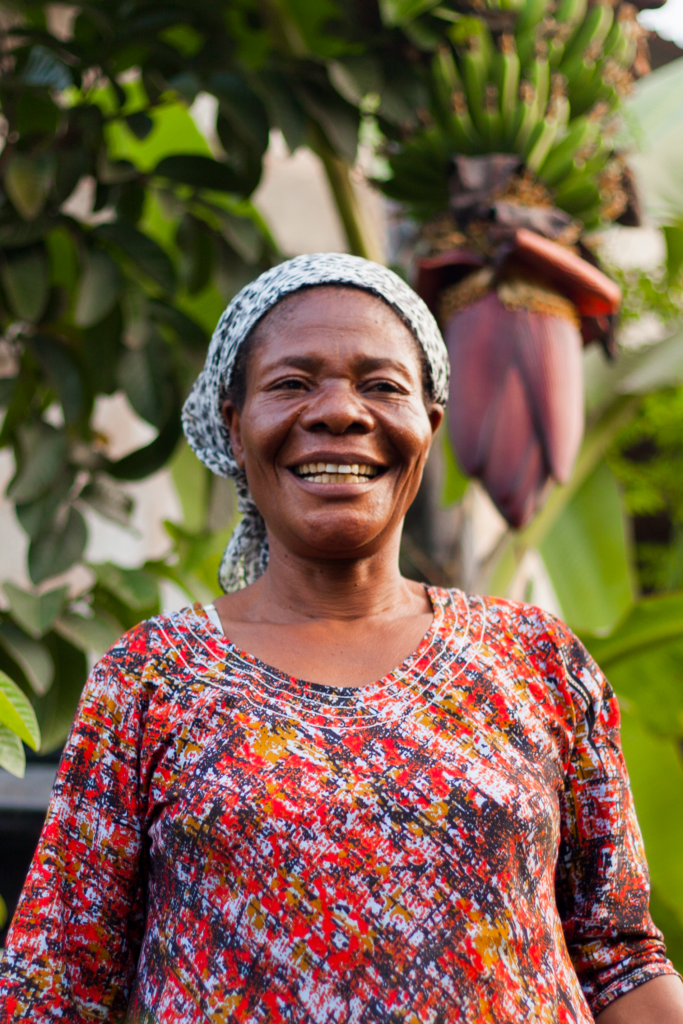Gender equality today for a sustainable tomorrow
Seventy per cent of the 1.3 billion people living in conditions of poverty are women. In urban areas, 40 per cent of the poorest households are headed by women. Women predominate in the world’s food production (50-80 per cent), but they own less than 10 per cent of the land. Eighty per cent of the displaced by climate related disasters and changes around the world are women and girls. Climate change may lead to more gender-based violence, an increase in child marriages, and worsening sexual and reproductive health.
Looking at these data published by the United Nations, it would be easy to view women – and in particular older women – as victims. Dorcas has a different message on International Women’s Day.
Women are not helpless victims, but they do experience – more than others – the impact of injustice and gender inequality. Advancing gender equality in the context of the climate crisis and disaster risk reduction is one of the greatest global challenges of the 21st century. Women are increasingly being recognised as more vulnerable to climate change impacts than men, as they constitute the majority of the world’s poor and are more dependent on the natural resources which climate change threatens the most.
At the same time, women and girls are effective and powerful leaders and change-makers for climate adaptation and mitigation. They are involved in sustainability initiatives around the world, and their participation and leadership results in more effective climate action.
Every day Dorcas meets strong older women who live in difficult circumstances. A current example are Ukrainian women who for the past week daily cross the border with Romania to help and comfort those who flee from the war in Ukraine. At the end of each day, they return to their own homes in Ukraine.
Despite their circumstances, these women have chosen to empower others and to help them develop – not only themselves, but also the people around them. These women use their strength to advocate for changes in their communities, on an economic, social and political level. Women such as Nabila from Lebanon, Ana from Moldova and Martha from Tanzania inspire us with their resourcefulness, their hope and their resilience. You can read their portraits on the Portraits of Power website.
Structural injustice and gender inequality leading to poverty, marginalisation, stereotyping and discrimination of women – and in particular older women – needs to be unpacked and called out for what it is: unjust. All of us need to recognise that women are the ones that across the globe daily experience the subtle and overt effects of injustice and gender inequality. Most importantly all of us need to live out the fact that we all have a role to play in addressing this injustice and gender inequality. And that women – in particular older women – are the ones that lead the way in this when we listen and pay attention. Without gender equality today, a sustainable future, and an equal future, remains beyond our reach.
Meet Jane (57), a strong senior woman from Tanzania – a country known for its beautiful wildlife reserves and for being home to a large variety of ecological systems ranging from Alpine deserts to rainforest areas. Tanzanian women are generally marginalised, a fact that is even more often the case for older women. Older women are usually impoverished, stigmatised and they have limited access to healthcare. Be inspired her story of courage and creativity as she stands strong in the face of poverty and the effects of HIV/AIDS.
“You never know how strong you are until being strong is your only option”
Jane, Tanzania

My name is Jane and in 1995, my life changed completely. My husband passed when I was pregnant with our fourth child. We seemed to have a good life – I was married to a soldier, we were blessed with wonderful, healthy children and we lived in an apartment on the military base in Monduli. We had hopes and dreams, just like any other couple.
But, shortly after the funeral, I discovered that my husband had died from AIDS. I was tested and my results came out positive. I felt utterly crushed. Nobody knew anything about HIV in those days, most of the information we had at the time was false. We did hear a lot of rumours and these rumours turned victims into outcasts.
Home EN
08 March 2022
Are you inspired?
Read the next story or contact us to get to know more about making an impact together.